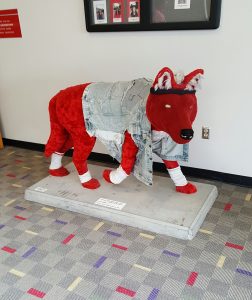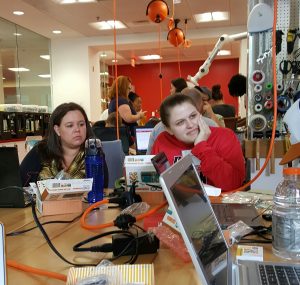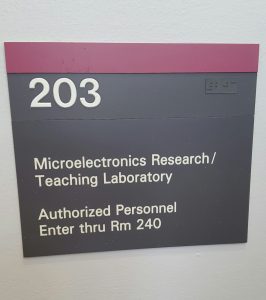The most interesting moment during my internship with the ASSIST Center (https://assist.ncsu.edu/) occurred on our last day in the lab. We provided feedback on iterations of each team’s work during the course of the internship. However, the most exciting moment was seeing every team’s final products and presentations during the Symposium.
Finding time to learn about the hardware and code in enough detail to write a lesson plan was definitely the biggest challenge for me. I wrote two lesson plans, one for micro-harvesting energy and the other about the use of micro sensors as data collectors. I knew nothing of either topic prior to the internship. Developing enough of an understanding to write the lessons, while finding time to complete the other components of the internship proved extremely challenging.
While my work took place in a lab in the ASSIST Center, we did visit the amazing College of Textiles, the MakerSpace at the Hill, and the Analytical Instrumentation Lab. The amazing N.C. State College of Textiles (https://textiles.ncsu.edu/) is the only such entity in the United States. A remarkable collection of researchers and students work with businesses to solve real world problems. There is a huge demand for these students when they graduate with over 90% of the College’s graduates landing a job in the textiles industry!

Front Lobby of the College of Textiles
On two different occasions we worked with sensors at the D. H. Hill MakerSpace (https://www.lib.ncsu.edu/do/make-at-hill). What an outstanding workspace! We received training in coding, were allowed to program Arduinos, received help on our final products and learned about the vast capabilities of micro-sensors.

Interesting Conversations in Makerspace!
On another field trip we visited the Analytical Instrumentation Lab. We toured labs used to develop microchips, labs housing super-sensitive microscopes, and other high-tech equipment. The lab is a cooperative effort servicing a number of different departments on N. C. State’s campus. The brilliant idea is that the departments share the equipment and its maintenance, thus reducing each department’s individual expense.

My mentors opened my eyes to an entire field of research and engineering that I did not know existed. By guiding us through the engineering process our mentors helped us gain a sense of how much effort goes into the development of new wearable products. I liked how our mentors kept us focused while keeping the atmosphere light and fun.
My biggest take away from the internship is the length of time it takes for a product to go from original idea to final product. The process includes many starts and stops, with changes and modifications to the concept and the actual product. My firsthand experience will translate directly into my Project Based Classroom. I will feel much more connected to my students as I steer them through various iterations of their own projects.
